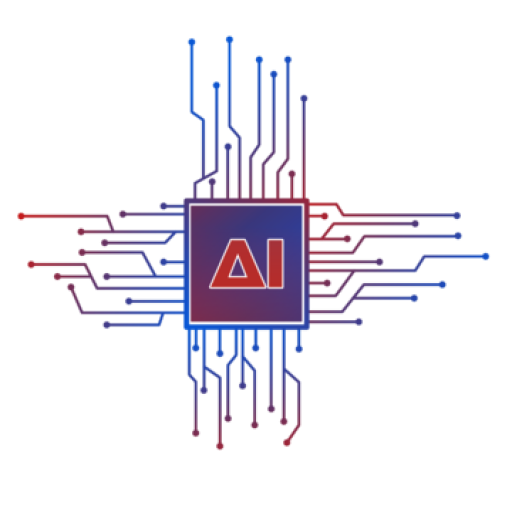The artificial intelligence sector has transformed from an emerging field to a cornerstone of modern industry. With AI job postings surging by 68% since 2022, organisations globally are prioritising technical talent to drive innovation. In the UK alone, demand for skilled professionals has skyrocketed, reflecting a 323% rise in hiring over the past eight years.
Contrary to common assumptions, this isn’t a fleeting trend. Industry leaders like Allie K. Miller, former Amazon Web Services global head of machine learning, emphasise that AI innovation is just getting started. Business breakthroughs remain ripe for discovery, particularly as 75% of firms plan to adopt AI solutions within five years.
Employers now face a stark reality: 66% of executives refuse to hire candidates lacking AI aptitude. Even more strikingly, 71% favour less-experienced applicants with relevant technical skills over seasoned professionals without them. This shift underscores AI’s transition from niche expertise to a mainstream business requirement.
Opportunities extend far beyond coding roles. From ethics consultancy to product management, the sector welcomes diverse skill sets. Healthcare, finance, and manufacturing firms actively seek individuals who can navigate AI integration while aligning with strategic goals.
For UK professionals, success hinges on recognising AI’s multidisciplinary nature. Whether refining existing expertise or pursuing specialised training, systematic planning unlocks doors in this rapidly expanding market.
Introduction to the AI Business Landscape
Artificial intelligence’s roots in mid-20th-century research now underpin transformative business solutions worldwide. What began as experimental neural networks has evolved into systems reshaping decision-making processes and operational frameworks.
Evolution of AI Technologies
Early concepts from the 1940s laid groundwork for machine learning – algorithms that refine themselves through data analysis. Modern iterations process information at unprecedented scales, enabling predictive modelling and autonomous reasoning. This progression mirrors computing power advancements, with today’s tools handling complex tasks like natural language interpretation.
Three pivotal shifts define this journey:
- Transition from rule-based systems to adaptive neural architectures
- Integration of real-time data streams for dynamic learning
- Development of industry-specific solutions across healthcare and finance
Current Market Trends and Opportunities
UK companies across sectors prioritise AI adoption, with 43% of manufacturers implementing smart automation last year. The democratisation of platforms allows non-technical professionals to contribute to AI-driven projects, expanding career pathways beyond traditional coding roles.
Key growth areas include:
- Ethical oversight frameworks for responsible implementation
- Cross-functional teams blending technical and domain expertise
- Custom solutions addressing regional challenges in public services
This landscape rewards professionals who combine sector-specific knowledge with adaptability to emerging trends. As tools become more accessible, strategic thinkers find novel ways to harness intelligence systems for measurable impact.
Understanding How to Get into the AI Business
Many assume artificial intelligence careers demand years of coding expertise. This misconception prevents talented professionals from exploring roles where their existing skills create immediate value. Industry leaders highlight a critical reality: successful implementation requires diverse perspectives beyond technical development.

Debunking AI Myths
Allie K. Miller, LinkedIn’s Top Technology Voice, states: “Thinking AI only needs engineers is like assuming a hospital runs solely on surgeons.” Organisations prioritise collaborative teams where legal experts ensure compliance, marketers communicate benefits, and project managers align deployments with strategic goals.
| Myth | Reality | Impact |
|---|---|---|
| Exclusive to coders | 42% of UK AI roles require non-technical skills | Wider talent pools |
| Requires advanced degrees | 67% of employers value sector experience over qualifications | Faster industry growth |
| Limited to tech firms | 83% of manufacturing firms seek AI specialists | Cross-sector opportunities |
The Importance of Cross-Disciplinary Roles
Modern artificial intelligence projects thrive when professionals combine domain knowledge with adaptive learning. Marketing specialists shape user-friendly interfaces, while HR leaders develop training programmes for smooth tech adoption. These hybrid positions require:
- Understanding ethical implications
- Translating technical jargon for stakeholders
- Identifying workflow integration points
No-code platforms now enable professionals to contribute without programming backgrounds. This accessibility allows gradual skill development while delivering tangible business impacts from day one.
Key Steps to Transition Your Career
Career shifts into technical fields needn’t require complete professional overhauls. Strategic skill enhancement often proves more effective than starting from scratch. Industry leaders advocate combining targeted learning with smart networking to accelerate progress.
Practical Measures and Networking Strategies
Begin by dedicating 3-5 hours weekly to AI literacy. Subscribe to curated resources like The Rundown AI newsletter while experimenting with tools such as ChatGPT. This hands-on approach builds practical knowledge employers value.
Three critical actions streamline transitions:
- Analyse job descriptions for AI-enhanced roles matching your current expertise
- Pursue certifications through Google’s Machine Learning Crash Course or Fast.ai programmes
- Attend UK-focused events like London AI Summit for sector-specific insights
Effective networking cuts time investment significantly. Connect with mentors through platforms like ADPList, focusing on professionals who’ve navigated similar career paths. As Allie K. Miller notes: “Consistent skill demonstration through projects often outweighs formal credentials during hiring.”
Balance structured learning with real-world application. Document your experiments with AI tools in a portfolio, showcasing problem-solving abilities. This tangible evidence helps employers visualise your potential in emerging roles.
Essential Skills and Tools for AI Success

Thriving in technical fields demands a balanced mix of hard competencies and strategic thinking. Professionals must master both specialised frameworks and collaborative approaches to deliver impactful solutions.
Technical Expertise, Certifications and Learning Resources
Python dominates programming needs, with libraries like TensorFlow streamlining machine learning workflows. Mathematical foundations in statistics enable accurate model training. Certifications from Google, Microsoft, and AWS validate practical skills employers prioritise.
| Resource Type | Top Options | Key Benefit |
|---|---|---|
| Courses | Andrew Ng’s ML Specialisation | Industry-recognised credentials |
| Platforms | Coursera, Udacity | Project-based learning |
| Frameworks | PyTorch, scikit-learn | Real-world application support |
Soft Skills, Adaptability and Project Experience
Creativity separates functional solutions from transformative ones. Empathy ensures ethical data usage, while adaptability helps navigate evolving tools. Documented GitHub projects, like chatbot development, demonstrate hands-on capability.
One hiring manager notes: “Candidates who explain technical concepts clearly often lead cross-departmental initiatives.”
Utilising Platforms Like GitHub and No-Code Solutions
Version control systems organise collaborative coding efforts. Builder.ai allows marketers to prototype without coding. These platforms like MindStudio bridge skill gaps while delivering tangible results.
Prioritise tools matching your current role. Gradual skill expansion proves more sustainable than overnight expertise shifts.
Developing a Future-Proof AI Strategy
Strategic career planning now separates temporary workers from industry leaders in technical fields. With generative artificial intelligence skills commanding £135,000 salaries, professionals must align their development with market demands. The key lies in building adaptable expertise that evolves alongside intelligence systems.
Prioritise roles where technical mastery meets commercial awareness. Machine learning engineers earn £125,000 by optimising models, while AI product managers (£123,000) bridge development teams and stakeholder needs. These positions reward professionals who:
- Combine sector-specific analysis with algorithmic understanding
- Anticipate ethical implications during product design
- Translate research breakthroughs into measurable impact
UK companies increasingly value hybrid skill sets. A robotics engineer might develop warehouse automation products while advising on workforce retraining. This dual focus addresses both technical implementation and strategic adoption challenges.
Continuous learning remains non-negotiable. Subscribe to journals like Nature Machine Intelligence, participate in Kaggle competitions, and monitor regulatory trends. As one London-based solutions architect notes: “Our most successful deployments integrate technical excellence with clear ROI narratives.”
Conclusion
Pursuing roles in technical fields offers transformative career potential. Machine learning engineers command £125,000 salaries, while data scientists average £84,000 – clear indicators of market value for those mastering relevant skills. These figures underscore why LinkedIn lists AI positions among its fastest-growing opportunities.
Success hinges on balancing technical prowess with collaborative thinking. Professionals must nurture both coding abilities and communication skills to explain complex models to cross-functional teams. Continuous learning through courses or hands-on projects remains non-negotiable in this evolving sector.
The journey requires strategic steps: build portfolios demonstrating real-world impact, network with industry mentors, and stay updated on tools like TensorFlow. Employers increasingly prioritise adaptable candidates who bridge technical implementation with business objectives.
Artificial intelligence careers aren’t finite destinations but evolving pathways. Whether transitioning from marketing or engineering, professionals thrive by aligning existing expertise with emerging technologies. Start today – experiment with platforms, contribute to open-source projects, and position yourself at innovation’s forefront.










